Steve Witkoff’s real job: make the world safer or the Trumps richer?
Critics point out that despite all the air miles Witkoff has flown in recent months, the conflicts he was supposed to solve remain stubbornly unsolved.
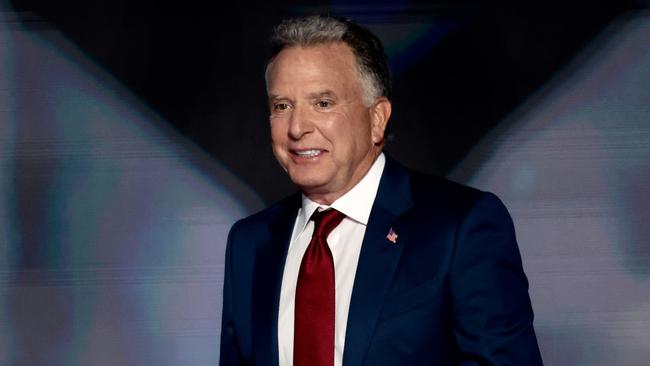
Steven Witkoff’s private jet can be a lonely place. For the past six months, Donald Trump’s golf buddy and fellow New York real estate developer has been charged with solving some of the world’s most intractable problems: the war between Israel and Hamas, Vladimir Putin’s invasion of Ukraine and Iran’s nuclear ambitions.
But as he crisscrosses the world on his plane, apparently on his own dime, Trump’s ambassador at large cuts a solitary figure: often travelling with only one or two aides and leveraging his real estate contacts into meetings with senior officials.
It has been more than 40 years since Witkoff, then a young property lawyer, befriended a braggadocious Queens-born real estate developer. Now Trump is the most powerful man in the world and Witkoff is his personal emissary, in charge of a one-man diplomatic channel that runs straight to the Oval Office.
Yet it has not been without its drawbacks. Witkoff repeatedly has been accused of letting Putin toy with him and repeating Russian talking points – as when he told Tucker Carlson in March that the “overwhelming majority” of people in eastern regions of Ukraine wanted to live under Russian rule.
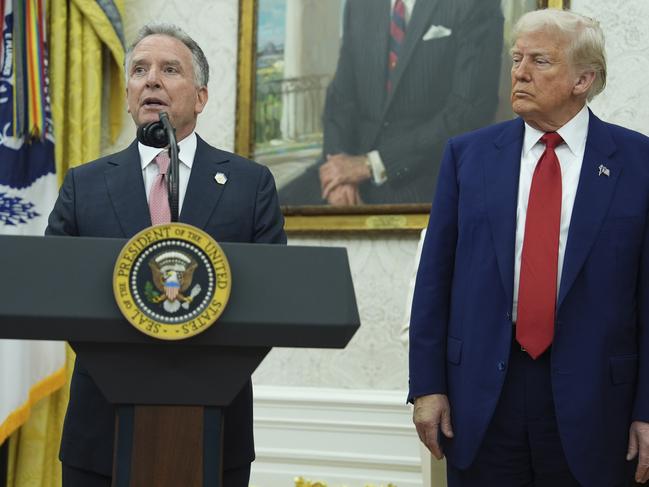
In one meeting with the Russian leader, he was criticised for relying on a Kremlin translator.
“He walks into a meeting with Putin without an aide, he walks into meetings with the Iranians without aides, he’s not getting briefed, I mean, it’s just, it’s insane,” says an informal foreign policy adviser to Trump. “But, you know, the responsibility lies with the President, I mean, I think any normal president would have yanked this guy already and just said, hey, you know, you’re embarrassing my country.”
A senior administration official says Witkoff is briefed by several people and is in regular contact with other members of the administration including Secretary of State Marco Rubio and Vice-President JD Vance.
“We’re the Trump administration so we don’t do things in a traditional sense,” he says. “We’re very much about doing things differently and thinking outside the box.”
Meanwhile, Witkoff’s son, 32-year-old Zach, is holding meetings with the same foreign governments his father is negotiating with. But his aim is different. Witkoff Jr is selling a cryptocurrency co-owned by his family and the Trumps. The sales so far stand to rake in hundreds of millions of dollars for the President’s family.
That apparent conflict of interest has made Witkoff Sr enemies not only among his political opponents but also within the wider orbit around Trump where rivals have started circling, alleging grift and pointing out that despite all the air miles he has flown in the past four months, the conflicts Witkoff was supposed to solve remain stubbornly unsolved.
Joel Pollak, editor-at-large at Breitbart, a pro-Trump news outlet, wrote on X last week of Witkoff’s Hamas-Israel negotiations: “If Witkoff continues to propose weak deals like these, you can expect questions to be raised about conflicts of interest, like how he was given this role despite business ties with the Qataris, and why his son is running around putting together crypto deals across the Middle East.”
Those sentiments are reflected in a half-dozen conversations with figures around the administration, none of whom will be named.
Yet all agree that Witkoff, 68, retains the support of the core of the administration, as well as that of the only person whose backing really matters: the President.
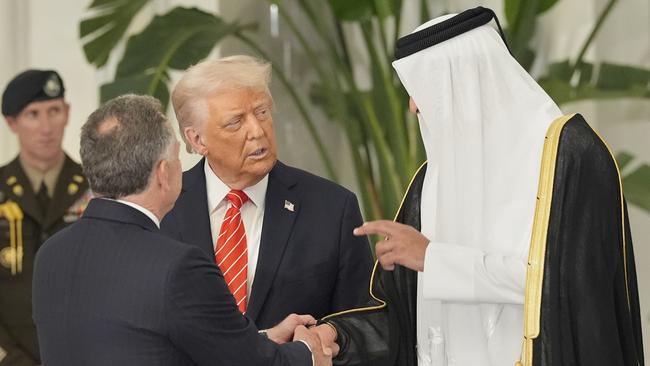
The two men have a relationship that stretches back to the late 1980s, when Witkoff was a property lawyer working in New York, admiring the swashbuckling tycoons who dominated the business and looking to get a slice of it himself. Soon he started buying up properties in the then-dilapidated district of Washington Heights.
According to Adam Piore in The New Kings of New York, Witkoff carried a gun and kept a copy of Tough Jews, a romanticised account by Rich Cohen of Jewish gangsters, on his desk. It didn’t take long before he came across a young property developer hungry to expand his father’s business. In a story that has become legend, late one night Witkoff bumped into Trump at a Manhattan diner and bought him a sandwich: ham and swiss cheese.
The two have been friends and occasional business partners since. Witkoff has stuck by Trump through the latter’s election loss and legal battles, and Trump supported Witkoff after the death of his son Andrew from an opioid overdose in 2011.
Those who know him say the Bronx-born billionaire is chatty and relaxed, adept at diffusing tense situations. A person who worked with him in New York for years said his charm was his “superpower”.
“Steve is a very likeable person,” says Don Peebles, a property developer and former fundraiser for Barack Obama who has known Witkoff since 2011. “He’s very smart, and he can take complicated problems and solve them.”
While Witkoff had been involved in politics through his work in real estate, his friend’s ascension to the presidency pulled him in to another level. In Trump’s first term he was, a person close to him says, a sounding board for the President.
After Trump lost in 2020, and legal cases against him mounted, Witkoff was by his side, including taking the stand for him as a character witness. Through the 2024 presidential campaign Witkoff worked through thorny issues for Trump, including smoothing over his relationship with Brian Kemp, the Republican governor of Georgia, a key swing state.
Those close to him say Witkoff’s work in real estate prepared him for negotiating some of the world’s most convoluted diplomatic problems. “Building super-tall buildings, like some of the buildings Steve has done in New York City, is very complicated,” Peebles says.
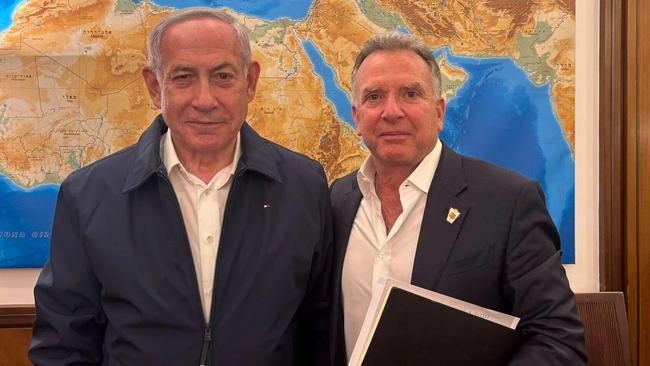
Critics have pointed to Witkoff’s longstanding business ties with the Qatari and United Arab Emirates governments as a corruption risk. Three officials in the region, however, say they see their existing relationship, Witkoff’s closeness with Trump, and the fact Witkoff isn’t a career diplomat as positive.
“Rubio works on many files and he’s a career politician, that’s what he was for decades,” one Middle Eastern official says.
“And with Witkoff, you’ve got an outsider who has had a successful career outside politics: a Trump loyalist, (whose) career in politics beyond Trump seems unlikely. He’s someone who Trump trusts very much, and who he listens to.”
Witkoff, he says, has “grit” and a lot of energy. Another says he is easy to reach on his mobile phone at any time.
Yet despite Witkoff’s initial successes negotiating a temporary ceasefire in Gaza and securing the release of two imprisoned Americans, none of his diplomatic efforts has resulted in lasting deals.
Criticism also is growing over the alleged conflict of interest at the heart of his ties with the President and foreign governments through a cryptocurrency company majority-owned by the Trump family.
World Liberty Financial advertises itself as “leading a financial revolution by dismantling the stranglehold of traditional financial institutions”.
In practice, it provides a way for investors to give money to the Trump family, who own 60 per cent of the company and make 75 per cent of the net income from its coin sales.
Jacob Silverman, co-author of Easy Money: Cryptocurrency, Casino Capitalism, and the Golden Age of Fraud, says it is “a convenient way to put money in Trump’s pocket”.
Reuters estimated in March that the Trump family was entitled to about $US400m ($620m) in fees from WLF’s activities to that point.
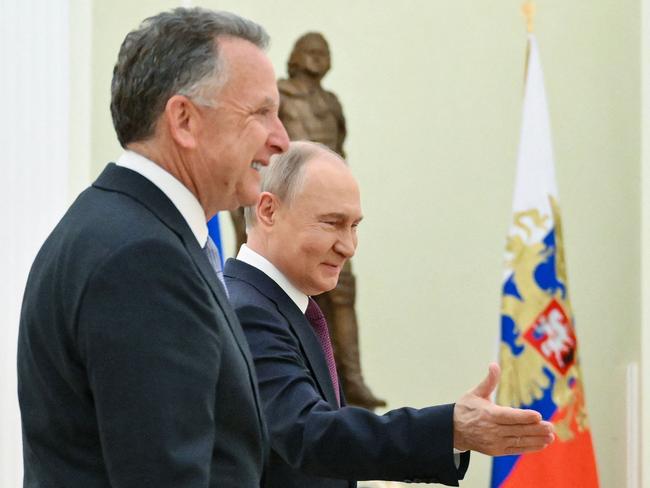
Trump, who only four years ago said the world’s best known cryptocurrency “seems like a scam”, has now promised to be the “crypto president”. He has issued executive orders to deregulate the industry, removing controls designed to stop corruption and money laundering.
WLF lists the President as its “chief crypto advocate”, while Trump’s sons are “ambassadors”. Witkoff and his two sons are co-founders along with Chase Herro and Zak Folkman, two serial entrepreneurs who got into crypto after a youth spent dealing marijuana and making videos on how to seduce women, respectively.
In September 2024, Trump endorsed the company, along with his two oldest sons (he claims he has divested his businesses to his children). Witkoff advertised the company on his X account.
Sales were lagging until Justin Sun, a Chinese-born crypto-billionaire, invested $US30m in late 2024. Sun was then appointed by WLF as an official adviser.
Before investing in WLF, Sun had been facing a lawsuit from the US Securities and Exchange Commission over allegations of fraud and market manipulation. That investigation was later halted. WLF has denied any link between the events.
After the president-elect named him Middle East envoy, Witkoff held meetings with prominent officials, including Sheik Tahnoon bin Zayed al-Nahyan of Abu Dhabi, known as the “spy sheik” for his role in the country’s intelligence apparatus.
In April, Zach Witkoff announced that WLF had struck a deal with an Emirati state-owned company chaired by al-Nahyan to buy $US2bn worth of their cryptocurrency. Soon after, his father met the sheik again to unveil an agreement that gives the UAE access to millions of US-made computer chips, according to an account first reported in The Wall Street Journal.
This northern spring, Witkoff Jr and his partners at WLF also met Pakistani officials including the Prime Minister, the Defence Minister and the army chief of staff to pitch their cryptocurrency.
A press release issued after the meeting highlighted that Trump was a backer of WLF and that Zach Witkoff was the son of his Middle East envoy.
A senior official present at the meeting said he believed the company could provide useful access to the administration.
“It just makes you want to smack your head against the desk,” the informal adviser says. “It’s totally out of some Central Asian potentate where it’s ‘let’s get the family in on the business’. It’s ridiculous.”
Witkoff denies all wrongdoing and has said he is divesting himself of his businesses, which he’s handed over to his sons.
“Mr Witkoff left behind a massive business enterprise to serve as special envoy and the results speak for themselves, including the release of Edan Alexander and Marc Fogel. The President is incredibly proud of Mr Witkoff and all that he has accomplished and will continue to leverage his talents to advance his America First foreign policy vision,” White House deputy press secretary Anna Kelly says.
The Sunday Times
Additional reporting: Mohsin Durrani, Haroon Janjua


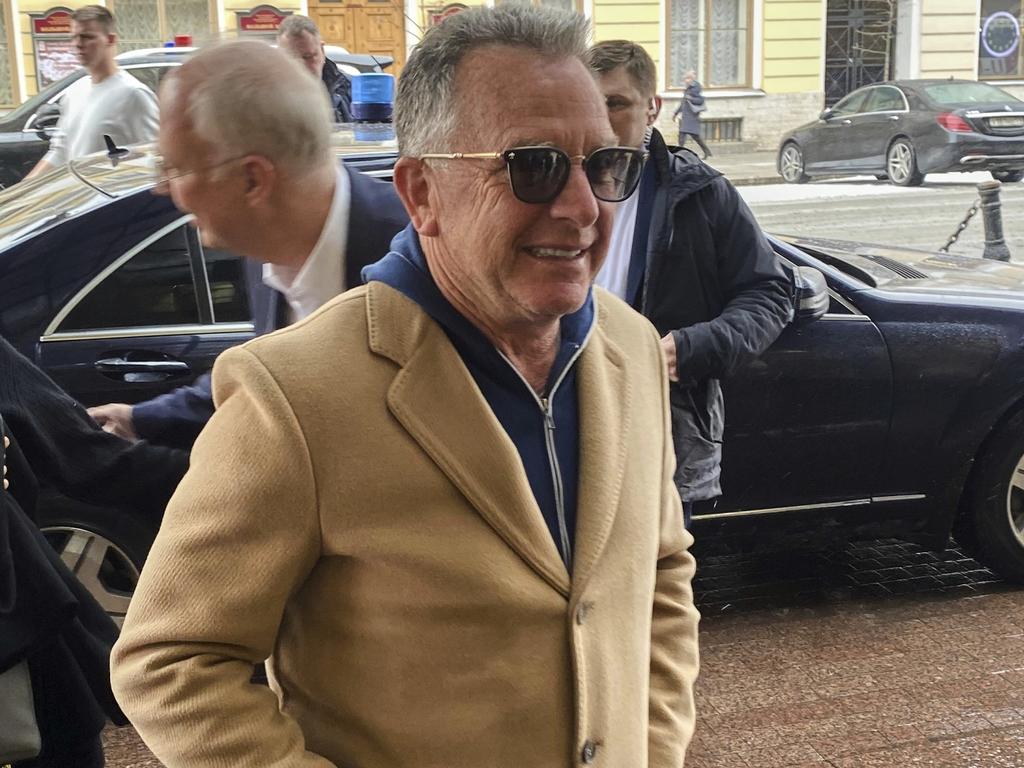
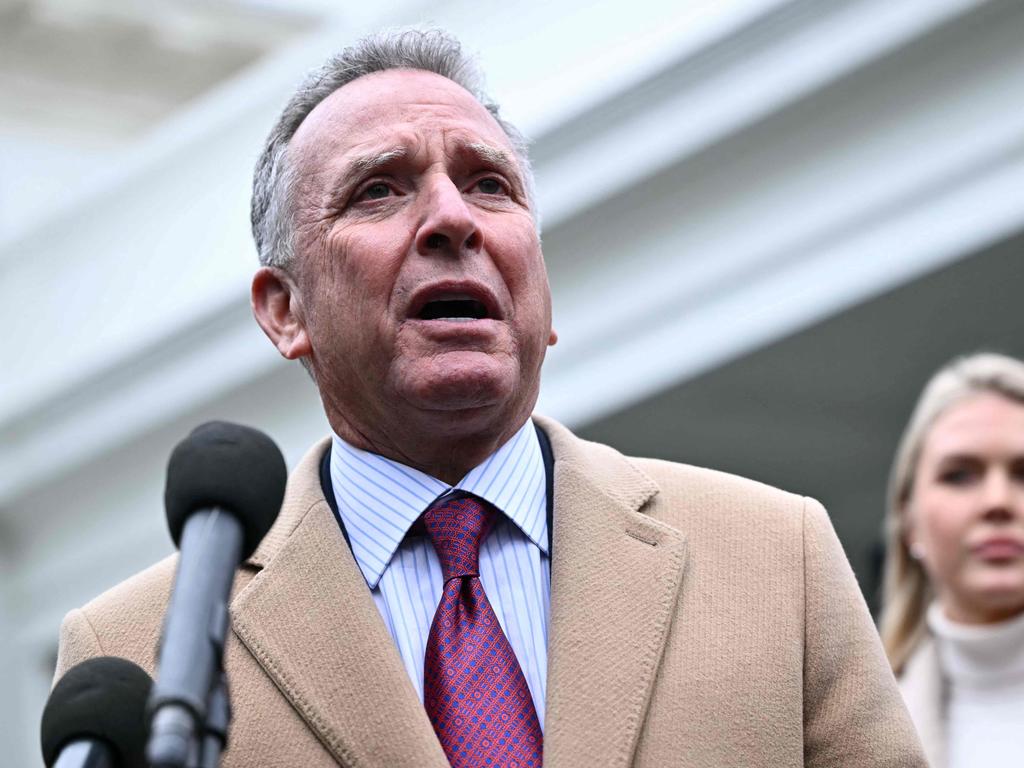


To join the conversation, please log in. Don't have an account? Register
Join the conversation, you are commenting as Logout